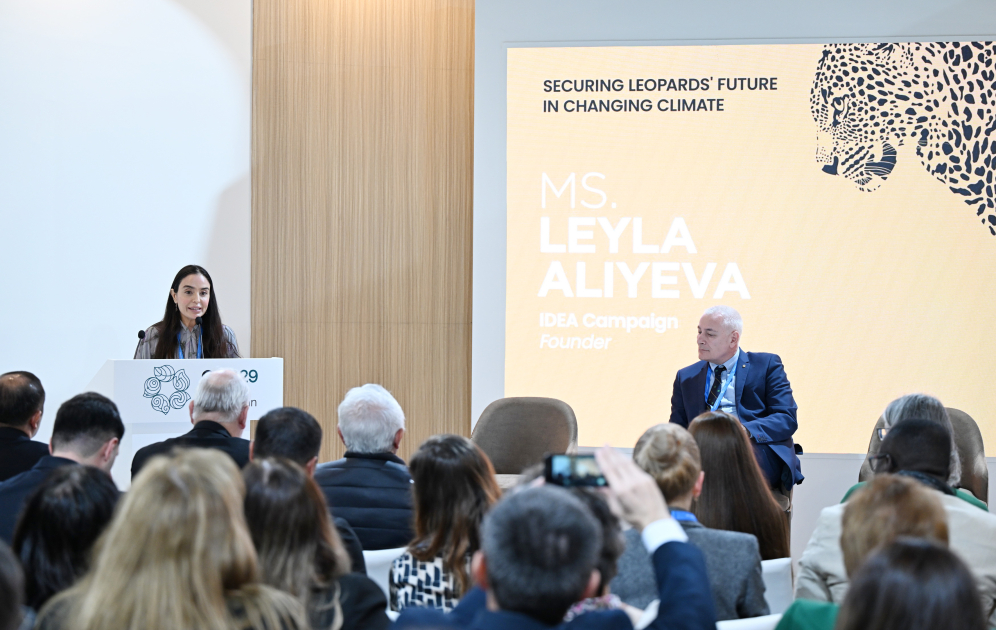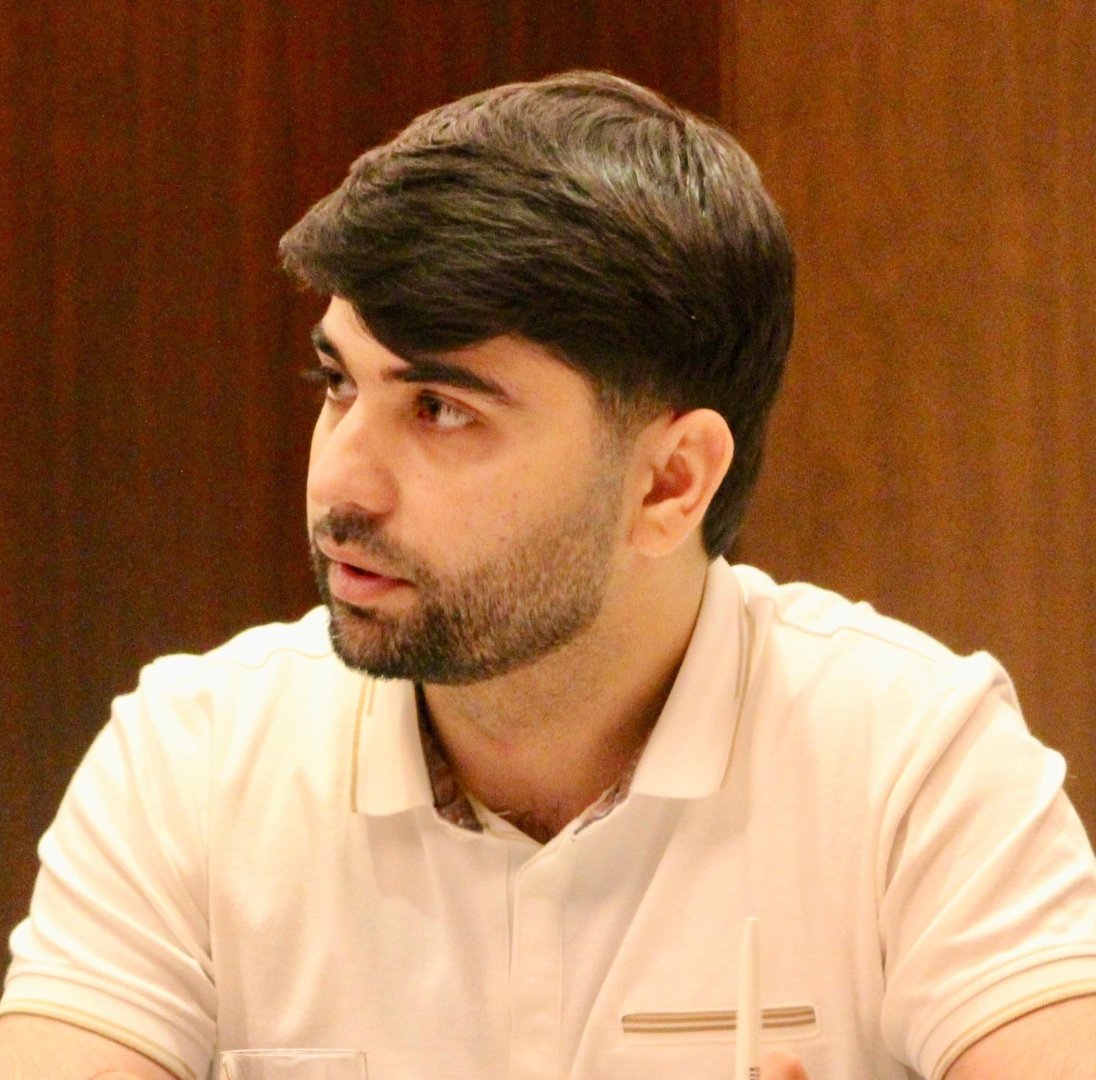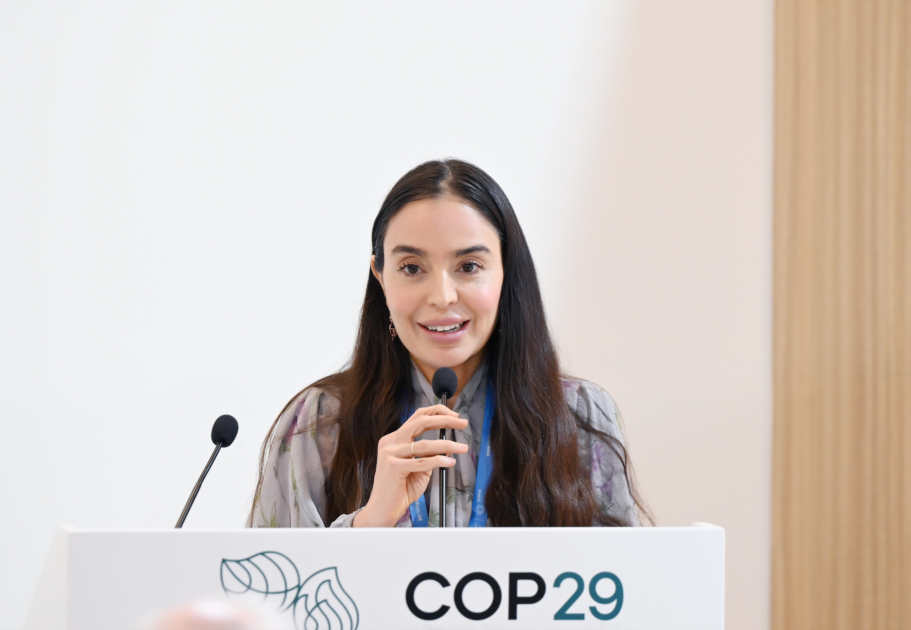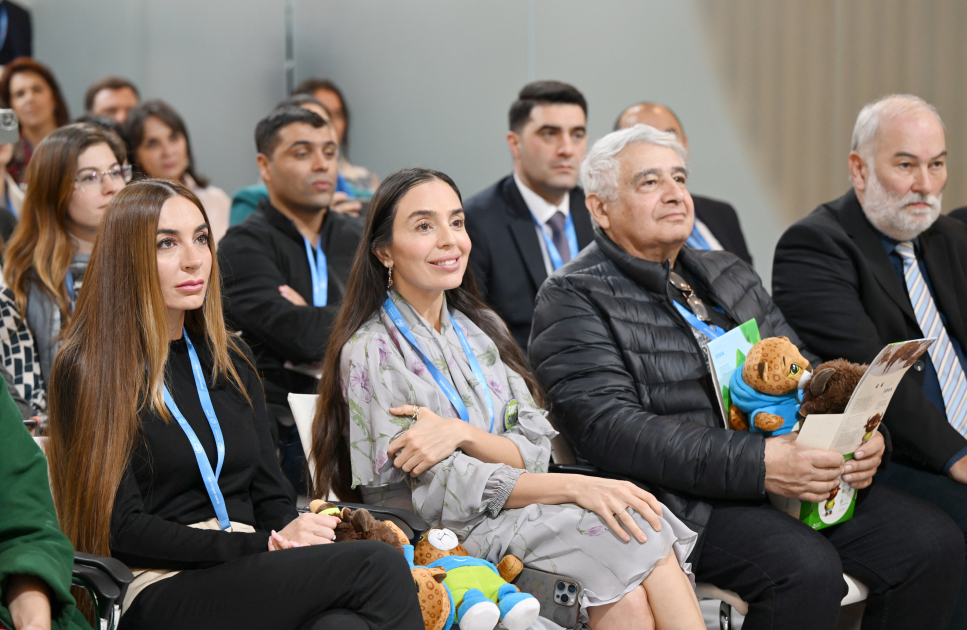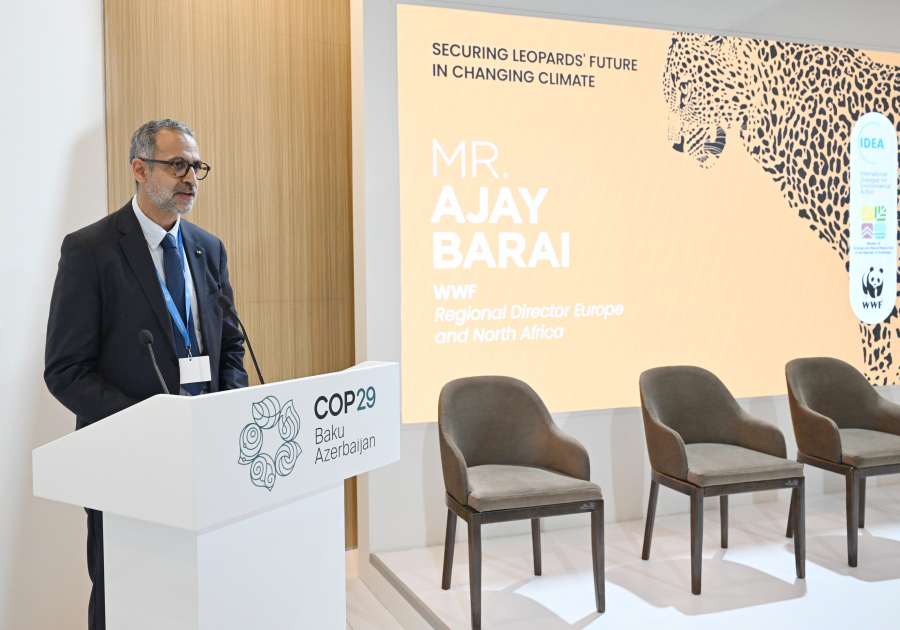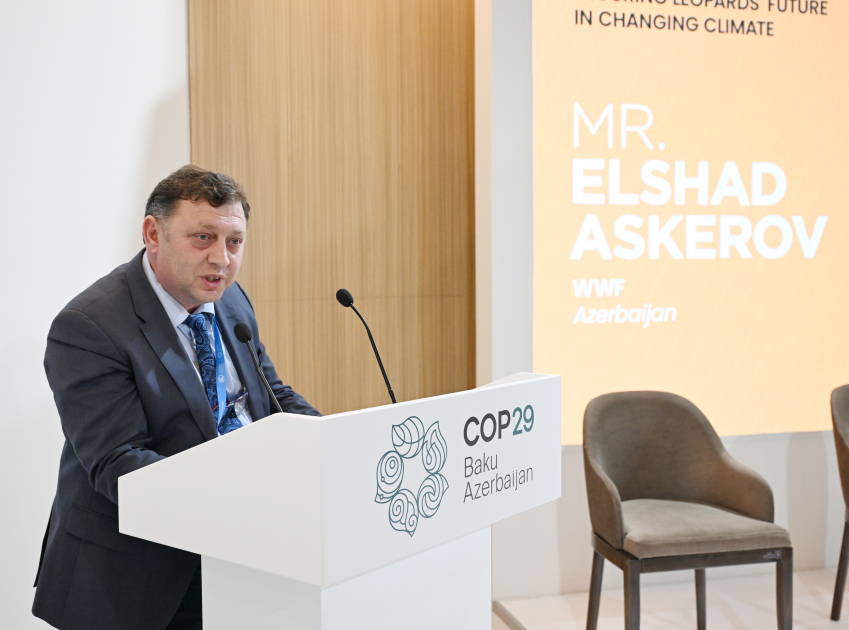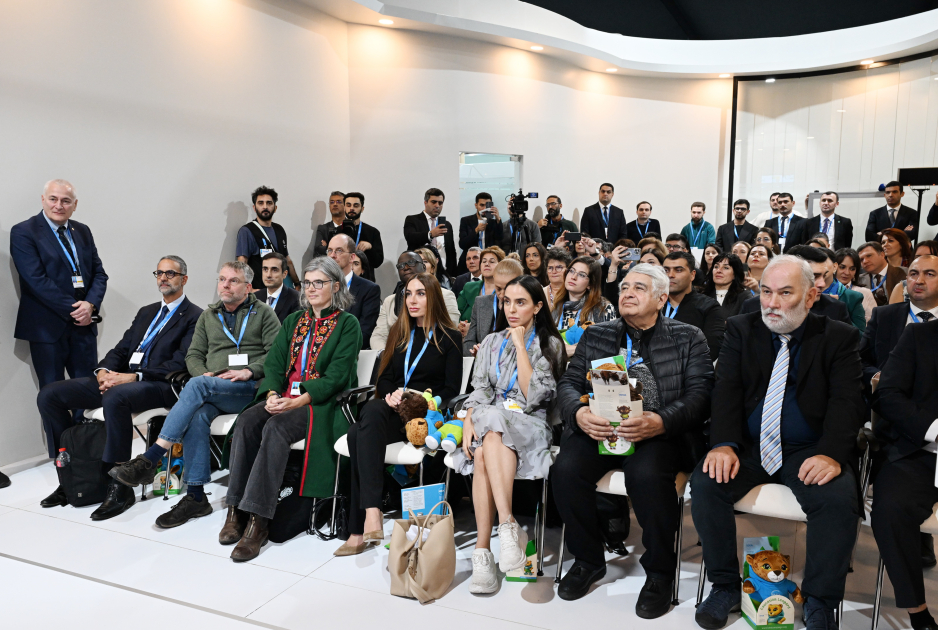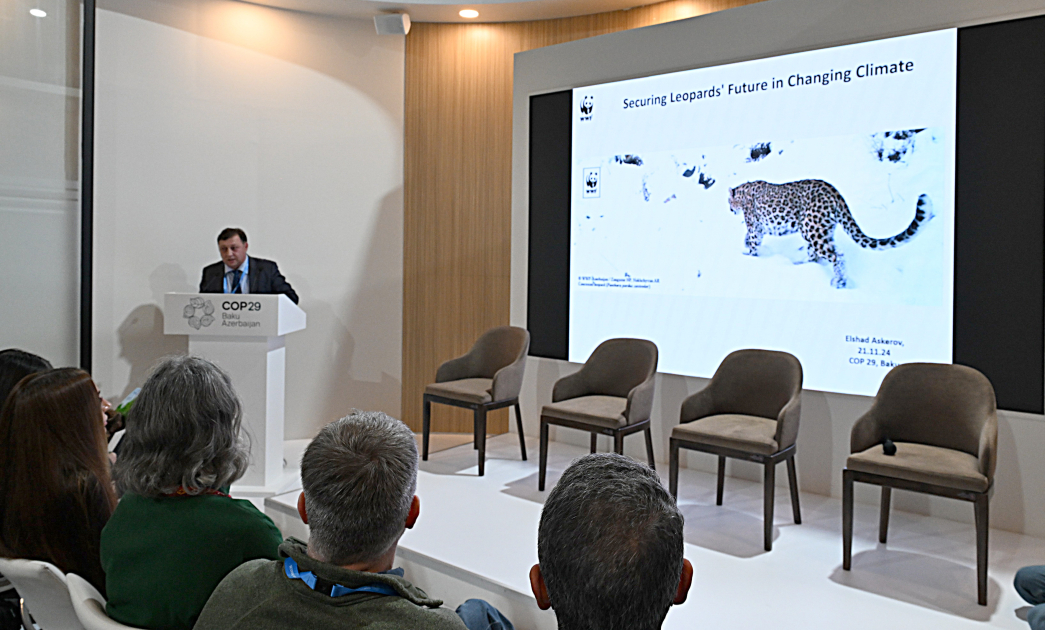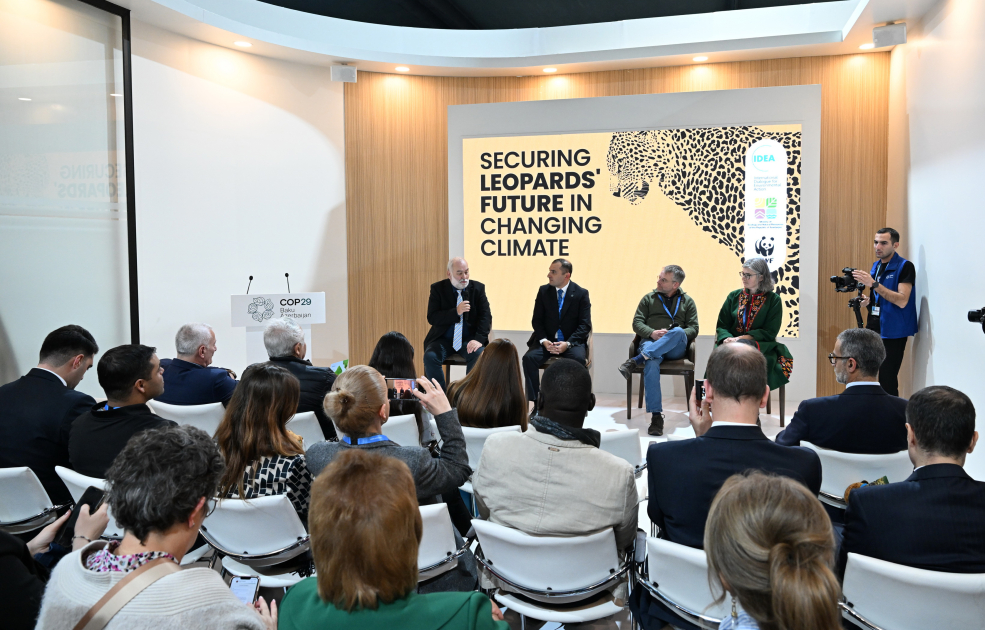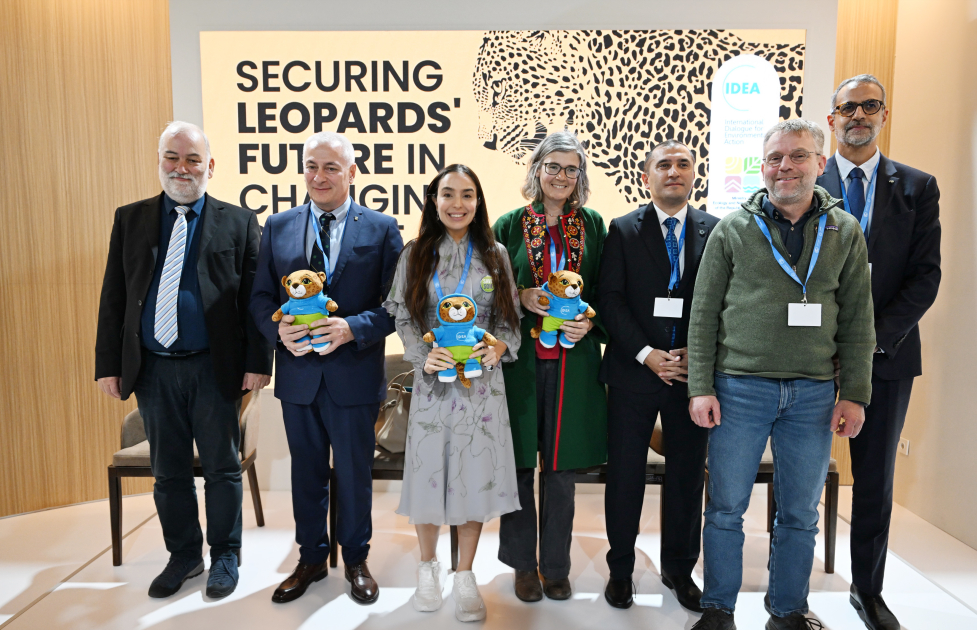BAKU, Azerbaijan, November 21. On November 21, a panel discussion on “Securing Leopards’ Future in Changing Climate” was held as part of COP29, co-organized by the Ministry of Ecology and Natural Resources, the IDEA (International Dialogue for Environmental Action) Public Union, and the World Wide Fund for Nature (WWF), Trend reports.
In her opening speech, Leyla Aliyeva, Vice-President of the Heydar Aliyev Foundation and founder and head of IDEA, highlighted the negative impact of climate change and global ecological disruptions on the populations of many species, including the Caucasian leopard. She emphasized that rising temperatures and other natural disasters are making it increasingly difficult for leopards to survive in the wild.
Leyla Aliyeva provided detailed information on IDEA’s numerous initiatives, including the "Caucasian Leopard Population Restoration in Azerbaijan" project, executed in collaboration with the Ministry of Ecology and Natural Resources and WWF, outlining its role in increasing the leopard population in the country. She pointed out that the 2014 Caucasus Biodiversity Summit had raised awareness about ecological balance and species conservation in the South Caucasus, and thanks to these efforts, 23 leopards have been spotted in Azerbaijan over the years.
In closing, Leyla Aliyeva called for strengthening global efforts to ensure the effective conservation of leopards.
Other speakers included Ajay Barai, WWF Regional Director for Europe and North Africa; Elshad Asgarov, WWF Director for Azerbaijan; Aurel Heidelberg, Caucasus Programme Manager at WWF Germany; Rashad Allahverdiyev, Deputy Chief of the Biodiversity Protection Service of the Ministry of Ecology and Natural Resources; Tatjana Rosen, Expert at the IUCN Cat Specialist Group; and Jernej Stritih, a representative from the Ecocorridors Fund for the Caucasus.
Stay up-to-date with more news on Trend News Agency's WhatsApp channel

